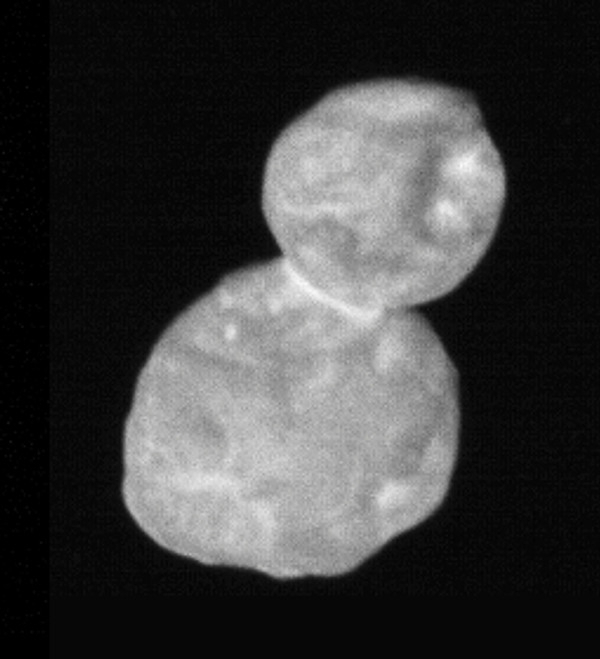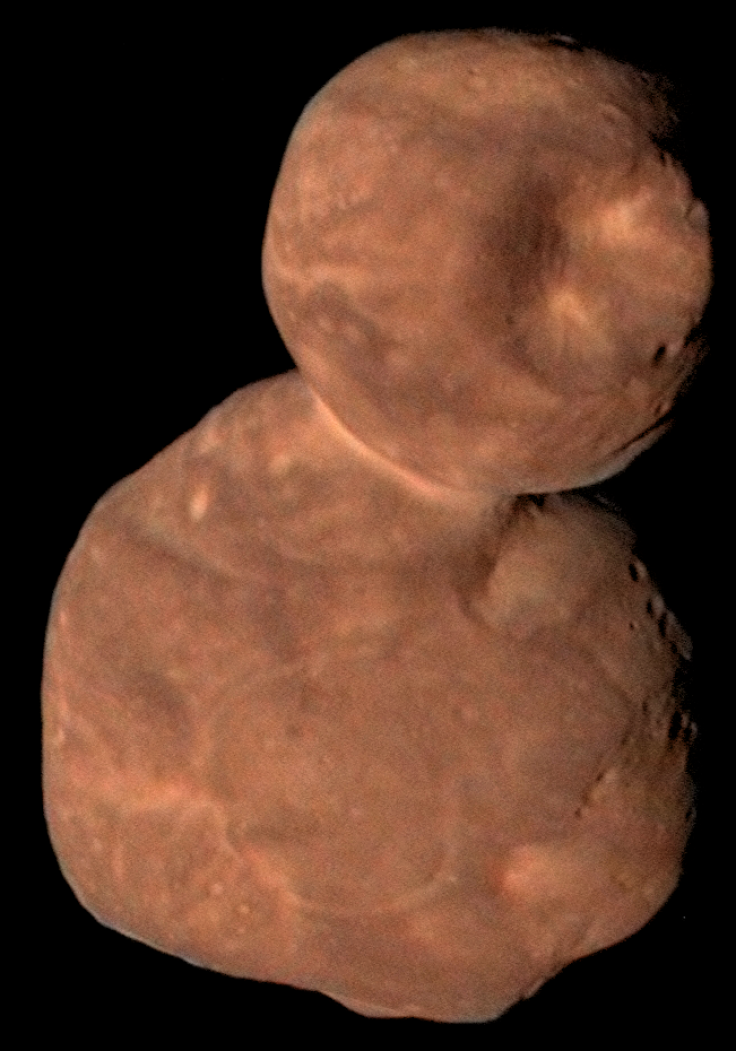
The snowman-shaped interstellar object, commonly known as Ultima Thule, has been renamed by the NASA scientists as Arrokoth, which means "sky" in the Native American Powhatan language. The name was changed after a backlash over the previous name which was adopted by the forerunners to the Nazi party and the term remains in use by modern so-called alt-right groups.
The icy rock, which orbits in the dark and frigid Kuiper Belt about a billion miles beyond Pluto, was previously referred to as Ultima Thule, which was chosen through a nickname campaign hosted by NASA's New Horizons team.
The name was one of about 34,000 names submitted by an online nomination process. It should be mentioned that earlier it was explained that Thule was a mythical island on medieval maps and the entire name means "beyond Thule," which suggests something that lies beyond the borders of the known world.
But reports suggested that the name was appropriated by the predecessor of the Nazi Party and it made NASA's original choice of nickname highly controversial. Later, a planetary astronomer at the SETI Institute and investigator on the New Horizons mission, Mark Showalter, who led the naming process of the snowman-shaped space object, told Newsweek "I had never heard the term Ultima Thule before we had our naming campaign."
However, Ultima Thule was just a temporary nickname and the new official name Arrokoth' reflects the inspiration of looking to the skies and "wondering about the stars and worlds beyond our own," said Alan Stern, the mission's principal investigator, from Southwest Research Institute, Boulder, Colorado. But NASA did not reveal any details on whether the Nazi controversy played a role to change the name.
As per the NASA statement, the agency consulted with Powhatan tribal elders and representatives before deciding on the name. Lori Glaze, director of NASA's Planetary Science division said, "Bestowing the name Arrokoth signifies the strength and endurance of the indigenous Algonquian people of the Chesapeake region. Their heritage continues to be a guiding light for all who search for meaning and understanding of the origins of the universe and the celestial connection of humanity."










